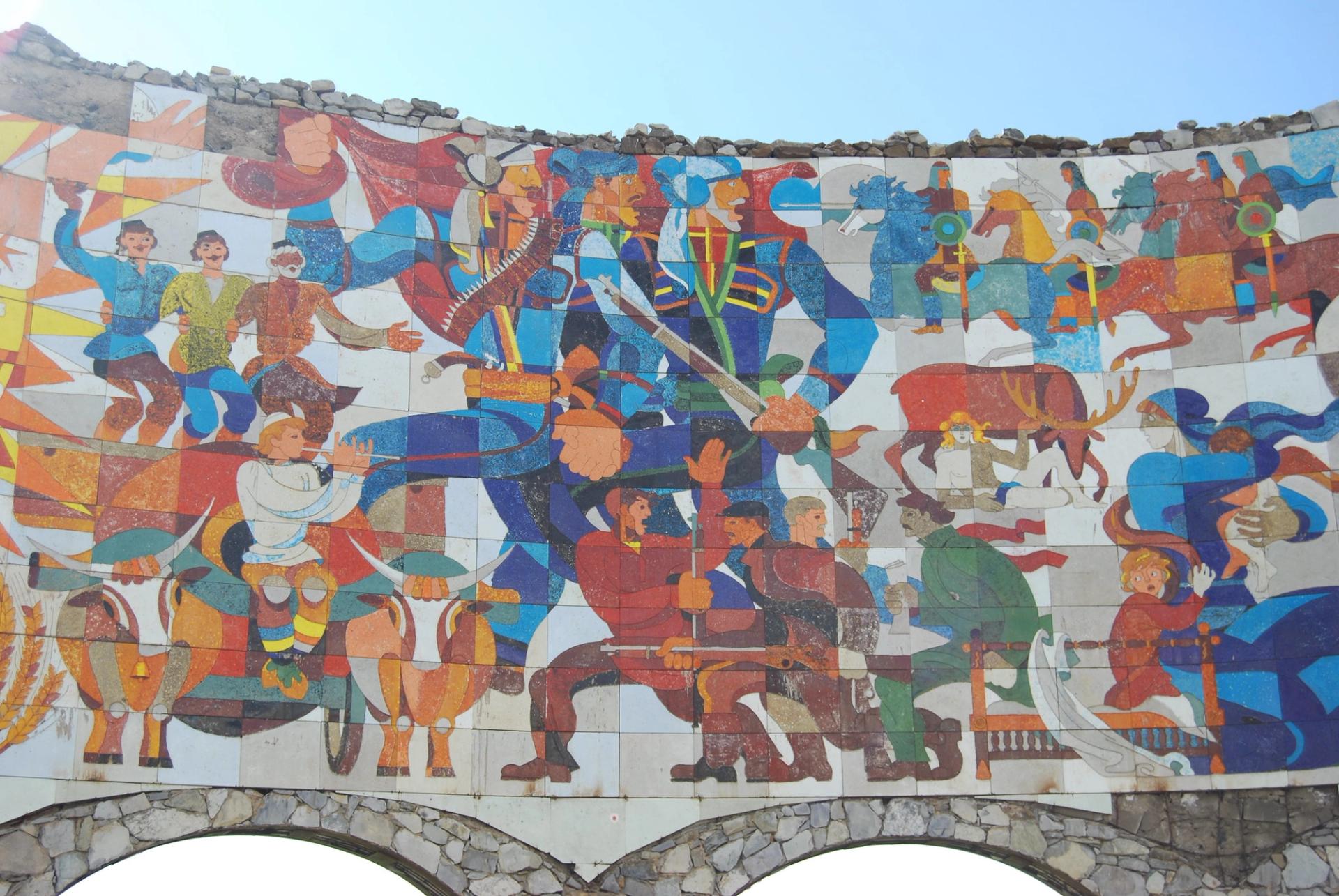Blog
Anti-corruption reforms have been successful in Georgia, but blockchain is stealing the limelight

In Georgia, reforms of the land registry since 2004 have drastically cut corruption. Blockchain technologies, introduced in 2016, have received a lot of the credit, with one WEF analysis suggesting Georgia’s blockchain-based registry could be emulated in other countries and settings.
This begs some questions: What has happened in Georgia? And, was blockchain really a ‘silver bullet’ that saved its land registry from bribery and corruption?
This blog investigates.
The global market for anti-corruption blockchain technologies
Governments worldwide – as well as institutions like the World Bank, IMF, WEF and OECD – are all exploring advanced digital technologies as a way to combat corruption. Development donors too, planning costly technological interventions for anti-corruption purposes, are aware that technology is neither a quick fix nor suitable under all circumstances. But they know that technology can play an important role.
These new technologies, including the much-hyped blockchain, do have the potential to improve accountability and efficiency, and reduce corruption risks. By 2025, the global government technology (GovTech) industry is expected to be worth US$1 trillion, so business opportunities for tech companies are abundant, as are potential profits. In this fertile landscape, blockchain exponents promote technological solutions to win public contracts, confident that their tech can secure identities, safeguard procurement and improve government services.
Georgia’s democratic reforms laid the groundwork for anti-corruption
After the peaceful ‘Rose Revolution’ and the change of government in Georgia in late 2003, democratic and legal reforms developed. Many public sector bodies were rapidly rebuilt and reformed, and the effects were immediate: corrupt practices, once endemic, quickly declined.
The 2004 ‘Law on State Registry’ was the starting point for many of these changes, as it dismissed the old state registries. The National Agency of Public Registry (NAPR), which handled property transactions and land rights, was renewed into a self-financing body with a digital repository and streamlined processes of registering land and transactions. A similar change was made to the Civil Registry, which handled birth certificates, passports and personal identities.
A 2012 World Bank report highlighted Georgia’s pragmatic approach to reform. ‘In some cases, processes that used to involve bribes were simply formalized and made legal’. Previously, for example, paying a bribe could speed up the processing of documents. The new system still offered rapid processing for a higher fee, only now the fees went to the agency rather than filling the pockets of corrupt civil servants.
With long-term support from Sida, among others, NAPR digitised the land ownership registry – the cadaster – and its paper maps. Registration processes were simplified to increase efficiency, but also to reduce the risk for corruption. Several tasks, such as managing sales of state properties, were distributed to different institutions.
According to the World Bank report, the shift in perception of corruption in state registries can be illustrated by a 2004 national survey in Georgia. It revealed that 97% of the respondents considered the Civil Registry to be the most corrupt agency in the country. Just two years later, the perception was flipped, as 97% of the respondents now perceived the agency to be free of corruption. Bribes were no longer needed to obtain civil documents such as a passport or to register a land title. Around 40% of land titles in Georgia are owned by women. The Sida evaluation report of the NAPR capacity building project notes that ‘customary discrimination against women as property owners is being partly countered by the increased transparency of the transaction processes’.
As these surveys show, and as Figure 1 demonstrates, much of the groundwork for reduced corruption was laid long before any blockchain technologies were added in 2016.
Figure 1: Georgia's Corruption Perceptions Index scores, 2002-2020
(a) Georgia Corruption Perceptions Index, 2002–2011
(b) Georgia Corruption Perceptions Index, 2012–2020
After public service legislation, reforms and digitalisation of the public sector starting in 2004, Georgia’s Corruption Perceptions Index (CPI) improved significantly. The curve flattens out after 2016, the year when Bitfury introduced the blockchain security layer on the Georgian land registry. The CPI is shown in two diagrams due to the change of CPI methodology in 2012. The red dots indicate the introduction of the Law of State Registry in 2004 and the introduction of blockchain in 2016.
Blockchain technology
The political party Georgian Dream – Democratic Georgia, founded by the billionaire, philanthropist and politician Bidzina Ivanishvili, won the 2012 elections, and Ivanishvili became prime minister. In 2015, he invited the Bitcoin company Bitfury to establish themselves in Georgia, with an offer of cheap loans, almost-free land, and subsidised electricity. This is how Bitcoin and blockchain expertise came to Georgia, and for a few years the country experienced a boom in small-scale, private Bitcoin mining, before it became unprofitable.
In 2016, Bitfury was invited to add a layer of security to the existing digital land ownership registry deploying the Exonum blockchain. A cryptographic certificate of the agreement documents and a timestamp of the registration were now included. In theory, public trust is strengthened as this information is stored in an immutable ledger.
But despite its accuracy and consistency of data, NAPR’s digital registry was still vulnerable to external hacking or internal manipulation. Data on titles and transactions could be manipulated before they are secured on the blockchain. NAPR’s security standards are high, and so far, no cases like this have come to light – but data tampering is at least a theoretical possibility. This, perhaps, explains why public perceptions around corruption have not continued to improve since blockchain was added to the registry. One 2019 study of Georgia’s Land Titling Project, for instance, showed that public mistrust of politicians remained, when it came to influence over land transactions.
This, incidentally, is a problem that has been identified in other blockchain-based registries, too. The land registry inAndhra Pradesh, India, for example, struggles to ensure that information entered on the blockchain is correct. Unless the data-entry process is free from corruption, blockchain technology alone can’t guarantee a trustworthy ledger.
Lessons to be learned: institutional trust above technological trust
Georgia’s reformed land registry has been a resounding success in securing property rights and preventing fraud. The World Bank, for example, found Georgia’s processes to be among the quickest and cheapest in the world.
But blockchain has too often received all the credit for this success. In reality it has had much more to do with the long-term process of building a trusted legal framework, local inclusion in establishing land rights, the development of a digital public registry, digital and precise maps, a modernised and simplified registration process, and a self-financing, responsible agency. Most important, there was a political will and international support to drive the change.
A 2019 study of the integration of blockchain to the NAPR land registry in Georgia identified some criteria for a successful implementation of this technology in government projects:
- A developed e-Government service is a prerequisite.
- Sustained public-private partnership was beneficial in Georgia.
- A developed legal framework was necessary for moving ‘blockchainisation’ of land titles past the pilot stage.
The same study also found that:
- The blockchain pilot came about largely because Bitfury Group was already established locally and encouraged the government to test the technology.
- No research to evaluate blockchain versus other solutions was done before the blockchain pilot was launched in 2016.
- No evaluations of the metrics of the project, such as cost efficiency, were found.
- The respondents to a survey included in the study referred to increased security of data, increased transparency, and improved traceability of transactions as the main achievements of the project.
As we have seen, trust in the institutions handling the land registry is crucial; trust in the blockchain security layer, less so.
References
Alderman, L. 2019. Despite Bitcoinʼs dive, a former Soviet republic is still betting big on it. The New York Times, 22 January.
Bhattacharya, A. 2018. Blockchain is helping build a new Indian city, but it’s no cure for corruption. Quartz India, 18 July.
Devlin, M. 2010. Seizing the reform moment: Rebuilding Georgia’s police, 2004–2006. Innovations for Successful Societies. Princeton University.
Erikson, J., Tkeshelashvili, M., and Andersson, B. H. 2012. Review of the project Capacity Building & Improved Client Services at the National Agency of Public Registry (NAPR) in Georgia. Sida.
Fidas, P. and McNicholas, J. 2007. Need land administration reform? Start a revolution. In Doing Business2007, 38–44. The World Bank.
Government of Georgia. 2011. Law of Georgia on the unified state registry of information. Legislative Herald of Georgia.
Ismail, N. 2018. GovTech to hit $1 trillion by 2025. Information Age, 12 November.
Lazuashvili, N. 2019. Integration of the blockchain technology into the land registration system. A case study of Georgia. Tallinn University of Technology.
Organisation for Economic Cooperation and Development. 2019. 2019 OECD global anti-corruption & integrity forum: Tech for trust. OECD event, 21 March.
Santiso, C. 2022. Digitalisation as an anti-corruption strategy: what are the integrity dividends of going digital? OECD Development Matters, 4 August.
Shang, Q. and Price, A. 2019. A blockchain-based land titling project in the Republic of Georgia: Rebuilding public trust and lessons for future pilot projects. Innovations 12(3–4): 72–78.
Van Niekerk, M. 2021. How blockchain can help dismantle corruption in government services. World Economic Forum, 5 July.
World Economic Forum. 2020. Exploring blockchain technology for government transparency: Blockchain-based public procurement to reduce corruption. IDB Insight Report.
Wellisz, C. 2018. Digital crusaders, technology offers weapons for the battle against corruption. Finance & Development, 40–43.
World Bank. 2012. Fighting corruption in public services: Chronicling Georgia’s reforms. World Bank Publications.
World Bank. 2016. Doing business 2016: Measuring regulatory quality and efficiency. World Bank Group.
World Bank. 2020. Early detection of fraud and corruption in public procurement through technology. World Bank event, 6 October.
Disclaimer
All views in this text are the author(s)’, and may differ from the U4 partner agencies’ policies.
This work is licenced under a Creative Commons Attribution-NonCommercial-NoDerivatives 4.0 International licence (CC BY-NC-ND 4.0)


